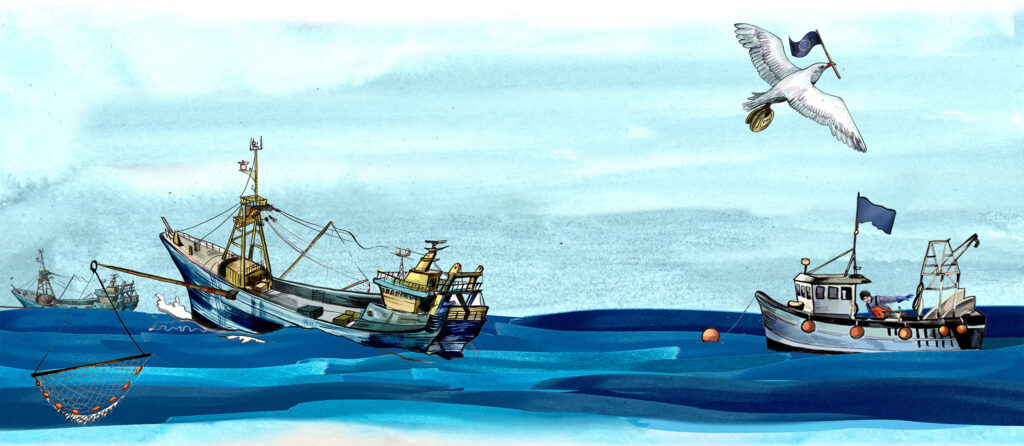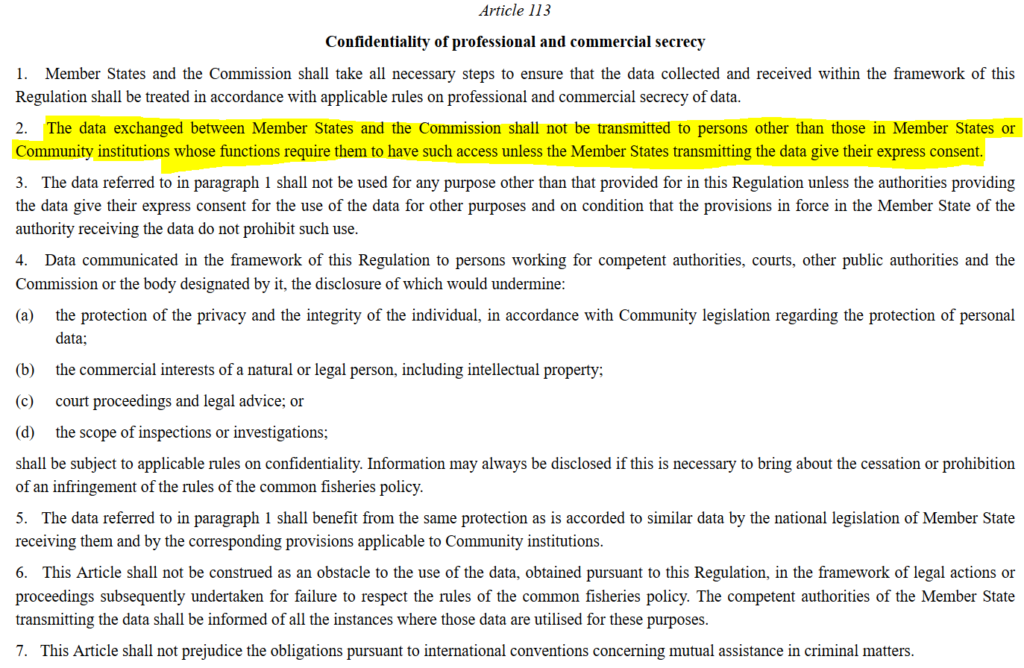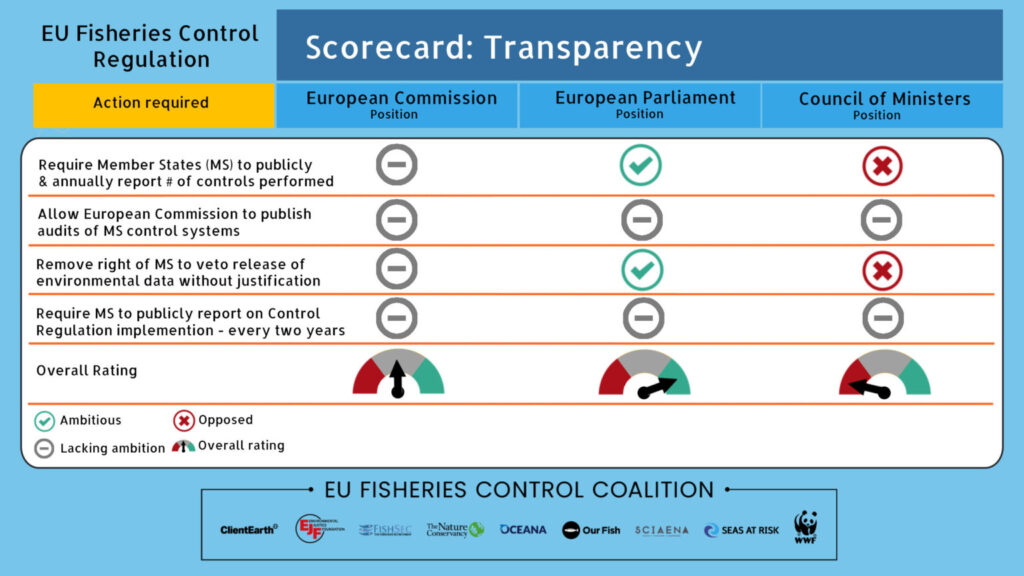Ongoing legislative trilogue negotiations expected to see a tug-of-war after Council favours a roll-back of a more ambitious Commission proposal advanced further by European Parliament amendments. At stake is the transparency of national controls of fisheries’ compliance with EU quotas.

Transparency plays a central role in a controversy over a major overhaul of the EU fisheries control system. On 30 May 2018, the Commission tabled a proposal for the revision of several Council Regulations and an ordinary Regulation dealing with the issue of fisheries control. This revision was deemed necessary to update these laws and align them with the reformed Common Fisheries Policy which taken place in 2013. The proposal contains various innovations relating to a wide range of issues, including fishing opportunities, ocean litter, marketing of products, surveillance of fishing activities, inter alia.
Among these innovation, it appears that one clause related to the transparency of the control system has sparked particular controversy.
Article 113 of the proposed act deals with the question of confidentiality of information concerning the implementation of controls, which is under the current act tightly sealed (see text below). It contains a mandatory non-disclosure clause for all data exchanges between member states and the Commission, from which the latter may deviate exclusively when the member state in question gives its express consent for disclosure.

This norm allegedly stems from 1993, meaning it was adopted even before the Commission and Council adopted their first internal decisions on access to documents, let alone Regulation 1049/2001 on public access to the documents of the European institutions, which replaced it (and which, coincidentally, was adopted precisely 17 years before the Commission’s most recent fisheries proposal). Moreover, in the meanwhile, the EU had also adopted the Aarhus Regulation (2006), which creates extensive rights for the public to access information concerning environmental information (which includes information pertaining to fisheries controls).
Access and sustainable fisheries advocates have therefore pointed out that article 113 of the Fisheries Control Regulation is out of step with existing horizontal transparency and disclosure norms. Nevertheless, in a case against the Commission initiated by Malta, the General Court has upheld this deviating non-disclosure clause, in spite of its incompatibility with Regulation 1049/2001, since it “lays down specific rules ensuring enhanced protection of certain data”. In response, transparency NGO Access Info Europe has stated that it is “not aware of another Regulation that violates the right to EU documents in this way”, prompting it to call for urgent reform.
The Commission proposal was seen as not going far enough in terms of meaningful improvement in fisheries control. Subsequently a coalition of over 70 environmental NGOs to get the European Parliament to take a more ambitious position in its first reading of the proposal. When it adopted its amendments in March 2021, which also included other transparency measures such as the compulsory placement of CCTV cameras aboard all fishing ships of EU member states, it received cautious praise. A coalition of NGOs advocating stricter fisheries controls spoke of “two steps forward and one giant step back”, due to what it perceived as new loopholes that the amendments created in the reporting system.
However, when the Council adopted its initial common position necessary for the Parliament and the Council to open informal negotiations, this position was seen as a major attempt to roll back any attempt to remove the member state veto over disclosure of its enforcement practice. The EU Fisheries Control Coalition, which includes NGOs such as ClientEarth, the WWF, and Oceana, captured the three institutions’ position on transparency measures in a highly schematic “transparency scorecard” (below), with the Commission “lacking ambition”, the European Parliament showing ambition, and the Council opposing reform.

Meanwhile, trilogue negotiations were opened at the beginning of September by the Slovenian Presidency. These are expected to last into the second half of 2022.
Access Info Europe has announced that it will continue to lobby for the abolition of the article 113 confidentiality clause in its current form, to be replaced by a provision that aligns with Regulation 1049/2001. This is also the formal position taken by the European Parliament through its proposed amendment of this article.
The legislator and NGOs’ positioning on the transparency question comes in the context repeated urgent calls on the EU from scientists to drastically reduce overfishing of its surrounding seas in order to prevent the further serious loss of biodiversity. In 2020, 300 scientists called on the Commission, Council and European Parliament to adopt science-based targets to create a sustainable fisheries policy. At that time, it was estimated that almost 38 per cent of fish in the North East Atlantic and Baltic Sea and 87 per cent in the Mediterranean and Black Sea were being overfished.

